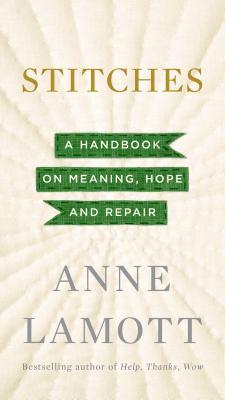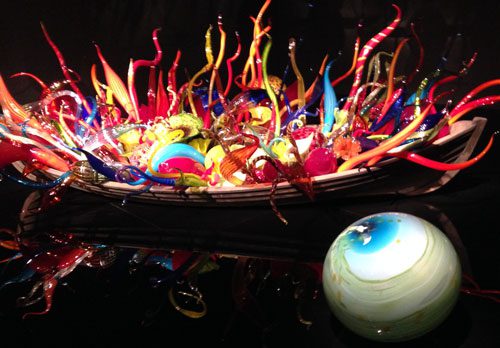 I heard the words in the title to this post uttered by Anne Lamott as she was interviewed for OnPoint. She has a new book: Stitches: A Handbook on Meaning, Hope, and Repair.
I heard the words in the title to this post uttered by Anne Lamott as she was interviewed for OnPoint. She has a new book: Stitches: A Handbook on Meaning, Hope, and Repair.
She begins, “One rarely knows where to begin the search for meaning, though by necessity, we can only start where we are.” An invitation to mindfulness, to be sure.
What if you wake up at sixty and realize you that you forgot to wake up and now your hair is falling out?
The search for meaning is as old as humanity. It showed up on the cave paintings and it can be found in everything we do as humans. The Buddha pointed out that some of our constructions are good and some not so good. That it would behoove us to endeavor towards good construction in body, speech, and mind.
What caught my attention in listening to Lamott on the radio was her insistence to turn towards grief and not away from it. She noted that our culture is phobic around pain, grief, and loss. I agree. We are clueless.
I picked up this book knowing that there would be a fair share of god and religion. There was. Not offensively so, but enough to create a distance for me, mostly in the earlier part of the manuscript. She gave the caveat that she is not talking about any god in particular but of love, and I am alway suspect when authors do this (Julia Cameron does something very similar in The Artist’s Way; not surprisingly, both of these writers are in recovery). The caveat is usually preceded with a barrage of god this and god that. I could have done without the story of teaching Sunday school. To each her own, I will grant. After that, the god talk diminished.
Still there is much wisdom here. Principally the necessity to turn towards the pain in our lives instead of away. She tells stories. They are unassuming yet steer you in profound directions. At times, I found myself wondering where she was going and why I was reading this seemingly self-indulgent yarn. Admittedly, she tells a good story and her life is interesting enough. Yet, she was leading up to something. An “aha” at the end of the story.
The book is a reflection on finding grace and connection in the misfortunes of life. It teaches how “maturity is the ability to live with unresolved problems.” You can read it’s 96 pages in a sitting, if you are so inclined. .

